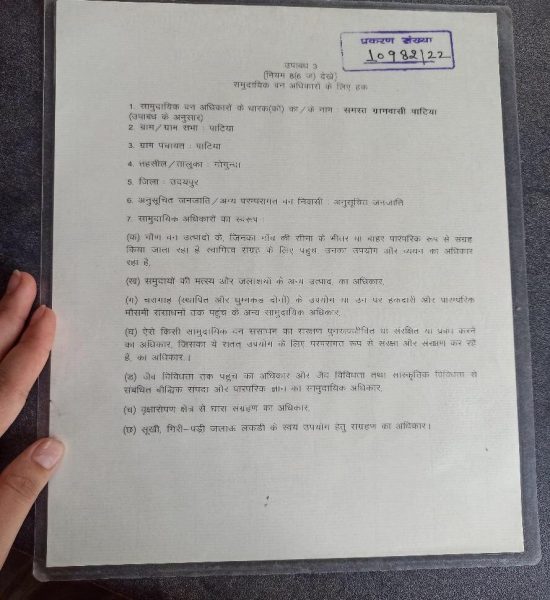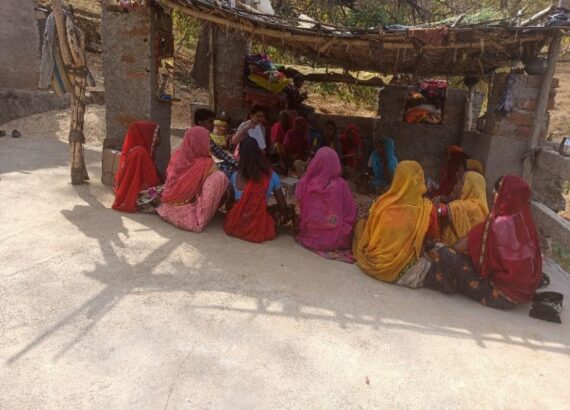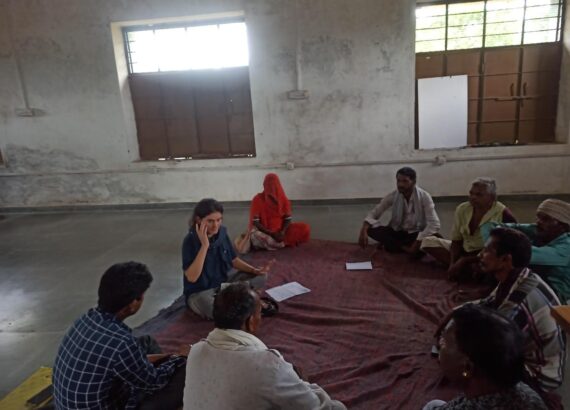
Community Forest Resource (CFR) Rights and Its Implementation
‘WHEREAS the recognized rights of the forest-dwelling Scheduled Tribes and other traditional forest dwellers include responsibilities and authority for sustainable use, conservation of biodiversity, and maintenance of ecological balance and thereby strengthening the conservation regime of the forests while ensuring livelihood and food security’
– Preamble, Forest Right Act, 2006
Van Utthan Sansthan, a team of Seva Mandir under the Natural Resource Department, has been actively involved in the implementation of Community Forest Rights (CFR) since the Forest Rights Act (FRA) came into existence. During an NGO orientation, I learned about the status of Patiya village, where a CFR title was granted within a 117-hectare forest area on May 25th, 2022. However, the community remains unfamiliar with the Act and its provisions.

Finding the Problem:
The CFR claim was filed in 2015, and the title was granted in 2022. Somewhere in between, community members forgot about CFR and its provisions. As the community gained ownership over forest resources, they misused them, endangering the ability of future generations to possess these resources. According to section 5 of FRA, right holders, Gram Sabha, and village-level institutions have a duty to protect wildlife, forests, and biodiversity. The Forest Right Rule 2008, under Rule 4 (1) (e) and (f), empowers Gram Sabha to constitute committees for the protection of forests and biodiversity and to draft management plans to fulfil the provisions of section 5 of the Act.
After reviewing legal provisions and observing the community, I decided to implement the rules and conduct legal awareness regarding forest rights and duties. Before informing them about their rights under the Act, it was crucial to explain the rationale behind the Act.
Awareness on: Our Forest, Our Responsibility (Humara Mongra, Humhara Dawitya)
To achieve the Act's objectives, it was important to instill a sense of belongingness toward the forest among communities and make them aware of their responsibility for forest conservation. Initially challenging, gathering people became easier when I conducted sessions during existing gatherings like Self Help Group (SHG) meetings, MNREGA construction work, Gavri mela, etc. My duty was to make them aware of their rights over forest produce and their responsibilities. The next step was to form the CFR Management Committee with equal representation from each hamlet. With guidance from Van Utthan Sansthan, the local panchayat, and the community, a 15-member CFR Management Committee was formed. According to the PESA Act and FRA, Gram Sabha has the authority to choose the kind of governance they want in their village. My duty was to make the community aware of their role in electing representatives for their committee, the body for forest governance and management.

Capacity Building of the Committee:
The formed Committee underwent capacity building, making them aware of their role and responsibilities as per the law and towards society. The committee, working as a forest governance body for the next 3-5 years, needed to operate responsibly. A working plan was drafted, including monthly meetings, awareness sessions, and the formulation of a management plan in collaboration with the Forest Department and local government.
Also read: Empowering Rural Women Entrepreneurs: Cultivating Change in Jawhar Farms
Turning Challenges into Triumphs:
Working with the (Bhil) tribal community of Udaipur, Rajasthan, posed initial language challenges as they speak Dwaudi. NGOs provided translated documents of rights, helping me learn their language and facilitating communication. This not only benefited my project but also strengthened my connection with the community.

Always a Law Student:
FRA is a community-based law, designed for specific communities to provide rights to them. As a law student, the exposure to the community's reaction towards FRA and the status of its implementation was invaluable. It provided insight into the challenges of implementing this law and how the community plans to implement it in the future.
Also read: Cultivating Resilience: Navigating Cropping Seasons in India
Embracing Community, Culture, and Growth during the Fellowship
Engaging with the community, participating in their events, embracing their culture, and working for them led to personal growth. Fellowship is about living moments and exploring oneself. Things may not always go according to plan, but aligning with the community's priorities makes everything meaningful.



